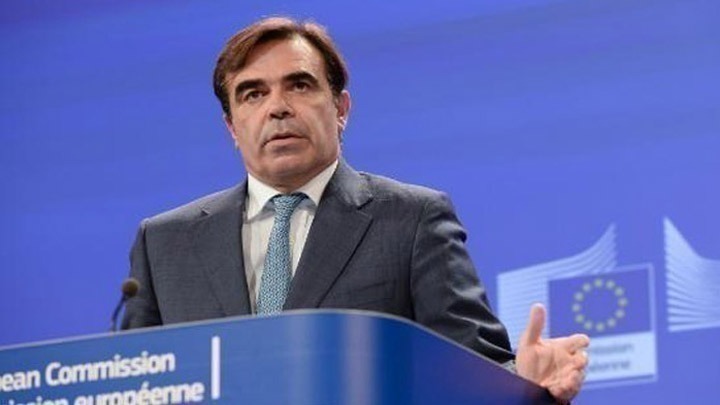A package of initiatives encouraging migrants to fill vacant positions in specific European industries will be presented in the European Union in the middle of November, EU Commission Vice-President Margaritis Schinas said in Thessaloniki on Friday.
Speaking during a tour of the Deloitte Alexander Competence Center (DACC) at Technopoli, the northern city’s ICT Business Park, Schinas said he will be presenting the package next month.
Another initiative to matching migrants and vacant positions down the line will be instituting a European university degree. This proposal will be revealed in the spring of 2024 and will further serve to match students with industries. He said that over 500 European universities and colleges have already agreed to join 60 alliances proposed by the EU “enthusiastically”, while the program will require physical presence.
As to the vacancies themselves, the commissioner said they will not be for highly skilled jobs, and will be addressed to countries of North Africa and the Middle East. The new initiatives “do no aim for highly specialized skills, because there already is legislation for those, the EU Blue Card system,” he said, referring to a program that provides work and residence permits for non EU-nationals.
Sectors that will benefit in particular from the new system include mostly those of agriculture, health services, information technology, tourism, hospitality, and food, he added.
In addition, the program’s management will not be managed by Brussels, but by each EU member state, and the European industry sector will be asked to take an active role.
Asked why the initiative did not begin earlier given the lack of skilled workers in the EU, Schinas said that it was necessary to conclude the negotiations between member states for the New Pact on Migration and Asylum.
The European Commission, the Recovery and Resilience Fund and the European Social Fund Plus provide unprecedented funding for skills and career issues, he underlined, and there is also the Erasmus program, which by 2027 will have received the historically high funding of 27 billion euros.
(File photo)










